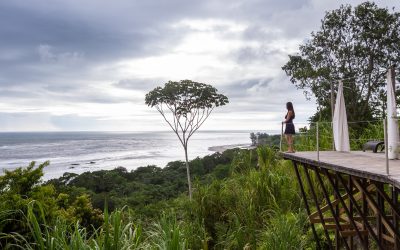

A Guide to Capital Gains Tax in Costa Rica
by Quatro Legal Real Estate Team | April. 26, 2024 | Video, Real Estate
In this article, as part of our ongoing Quatro Legal Real Estate series, we’ll be talking about capital gains tax in Costa Rica.
What is the capital gains tax?
The capital gains tax was created by Law 9365 for strengthening of public finances, which leaves a capital gains tax on movable and immovable property.
A capital gain arises where there’s a positive difference between the value of an asset at the time of the purchase and the value of the asset at the time of the sale.
When this value is positive, it is subject to 15% tax.
How to Calculate Capital Gains Tax in Costa Rica
To calculate the amount of the capital gain, the purchase value of the asset, the value of any investment and improvements made to it, and its sales value are taken into consideration. The 15% rate is applied to any difference.
The law provides two exceptions to the 15% capital gains tax related to real estate.
Exceptions to Capital Gains Tax in Costa Rica
The first one is the home exception. If the property being sold is the seller’s primary residence, the seller may apply for this exception and may be exempt from paying capital gains tax. For this purpose, the mentioned law and its regulations define primary residence as the property where the seller resides.
The home exception does not apply to commercial real estate and is questionable for homes or residences that are leased to third parties. If the property is owned by a non-domiciled person, whether a physical or legal entity such as a foreign corporation, trust or any legal entity, not duly and legally domiciled in Costa Rica, the buyer must retain 2.5 percent of the sale price to cover any capital gains tax and must file any property taxes to the tax administration.
Public notaries are required to confirm this prior to registering a property transferred in the national registry. Law considers a domicile person to be any foreign person that spends more than 183 days a year in Costa Rica, and it doesn’t have to be consecutive.
Costa Rican corporations duly registered in the National Registry and that are represented or owned by foreigners are considered domiciled in Costa Rica.
Another option is for the sellers who own property prior to the entry into force of the law on July 1st, 2019, to elect to use a one-time exemption.
In this case, the seller pays 2.25 percent on the sale price and he or she must file the property tax return and make the corresponding payment to the tax administration
Looking for legal counsel in Costa Rica you can trust? Get in touch today.
Disclaimer: The information provided in this blog post is for general informational purposes only and is not intended to constitute legal advice. While we strive to ensure the accuracy and timeliness of the content, laws and regulations are subject to change. For the most accurate and up-to-date information, please contact our office directly. Some images may be AI generated.
Get To Know Quatro Legal

We’re bringing empathy and excellence back to legal counseling. Quatro Legal is built on a bedrock of kindness, a passion for service, and a commitment to guiding you through your legal challenges with ease.
OUR SERVICES
EXPLORE BY
category
REAL
ESTATE
CORPORATE
COSTA RICA
LIFESTYLE
LABOR & EMPLOYMENT
CLIENT
TESTIMONIALS
FREE TRADE
REGIME
All Rights Reserved 2024 | Privacy











